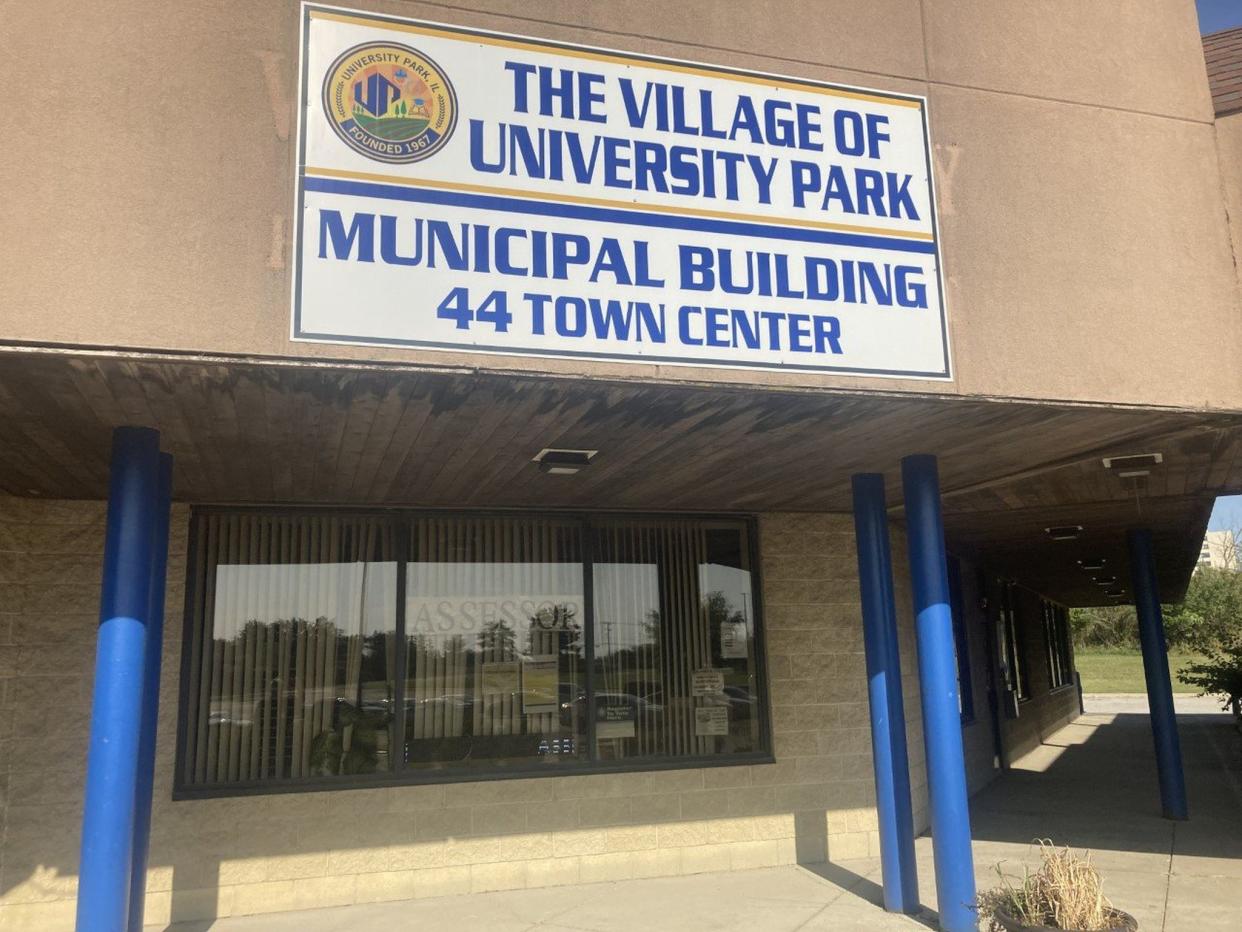Legislation to create development authority in University Park shocks some trustees

Some University Park Village Board members say they are concerned about proposed state legislation that would create a University Park development authority board to focus on redeveloping vacant and underutilized commercial, industrial and residential property throughout the village.
Village Trustee Theo Brooks said he was stunned when he recently learned the University Park Development Authority Act was even considered in the last legislative session because no one asked the Village Board for input.
“It’s insulting,” Brooks said. “Why are you putting power in someone else’s hands to do things for University Park?”
The bill was sponsored by state Rep. Debbie Meyers-Martin, D-Matteson, and state Sen. Michael Hastings, D-Frankfort, and passed the House 113-0, but wasn’t brought to a vote in the Senate.
Meyers-Martin issued a statement stating she didn’t author the bill and declined to comment further. She did vote for it, according to the Illinois General Assembly website.
Hastings said the bill didn’t advance for a vote in the Senate because it “needs an extensive amount of work.”
The legislation would create a board to encourage redevelopment and aim to attract new residences, senior and student housing, and commercial and industrial businesses, while creating opportunities for economic development, sustainable initiatives and affordable housing and employment for residents.
The board would have jurisdiction within the village and should “make its best effort” to annex land. The board would be able to enter into loans, contracts, agreements and mortgages, according to the bill, as well as issue bonds not to exceed $200 million under the supervision of the Illinois Finance Authority.
Trustee Donna Fulcher said she was disappointed when she learned about the bill a month ago because it limits the Village Board’s powers.
“What the bill does is take away all decision making about economic development from the board of trustees and the residents,” Fulcher said.
Fulcher said she’s concerned about who would be on the board, because the bill does not mention the members have to be University Park residents.
The legislation stated the board would have five members, three appointed by the mayor and two appointed by the governor, and a three-member quorum would be required to meet.
Given the board’s spending powers listed in the bill, Fulcher said the board would be able spend money at a cost to the community.
“Our taxes could increase based on the decisions this board would make,” Fulcher said. “And guess who has to pay? The taxpayers.”
The proposed legislation stipulates members of the new board should have experience in promoting development and in assisting in planning, acquisition, construction and marketing of residential, industrial, commercial or freight-oriented projects.
While the bill states the board should “maintain relations” with residents, industries, businesses, nonprofit organizations and elected officials, Brooks said that it would take away the Village Board’s ability to approve economic development projects.
“It literally takes powers out of our hands,” Brooks said.
Frank Bass, the village’s lobbyist, said he was hired by the village halfway through the 2023 legislative session and advocated for the bill. Ultimately, it was decided the bill needed more work, Bass said.
“We wanted to stop and see if it will work for this town,” Bass said.
While some towns, like Kankakee, have a development board, Hastings said University Park residents and trustees should give input before the bill is considered again.
“There’s a lot more work to be done,” Hastings said. “You have to bring everyone’s opinions in. You have to do your due diligence.”
John Coultas, the legislative affairs director with the Illinois Municipal League, and University Park Mayor Joseph Roudez filed witness slips supporting the bill, according to the Illinois General Assembly website. Coultas did not immediately return requests for comment Friday, and Roudez did not reply to multiple requests for comment.
Fulcher said she was disappointed to see how easily the bill passed in the House, and she’d like legislators to consider the community members of any legislation they pass that pertains to a specific town or village.
“I’m sure in their communities they wouldn’t do that, and they shouldn’t pass bills they wouldn’t want in their own community,” Fulcher said.
Brooks said Roudez should have told the board about this bill.
With this bill, Brooks said Roudez is trying to bypass the trustees to get his development plans through.
“He hired somebody to create a board outside his board and I believe it was in case he lost the election,” said Brooks, who ran for mayor in the April election and lost by 10 votes. “This was his back up plan.”
Brooks and Fulcher both said they don’t want the bill to move forward in the 2024 legislative session.
“I want it to die,” Brooks said. “This was done underhanded and we’re very unhappy.”

